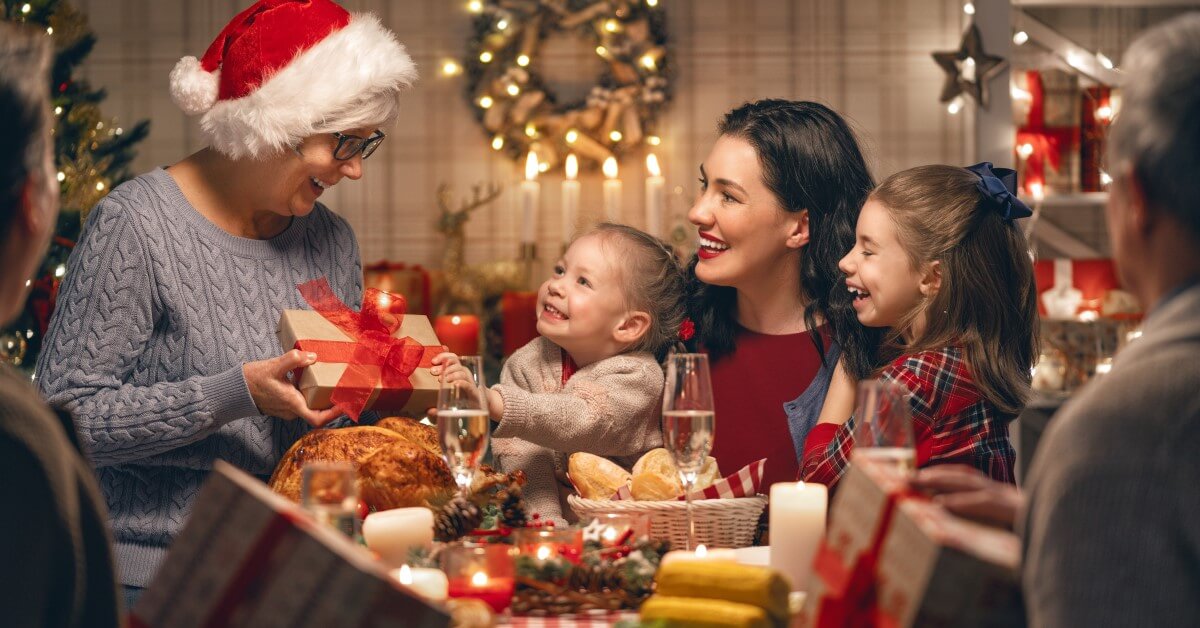Overview
The holidays can be fun but equally stressful for many of us. We keep busy with shopping, parties, travel, and many other activities that keep our minds and bodies engaged.
Around the holidays, sleep often gets second billing to the other things that keep us occupied, which can be costly for our overall health.
It doesn’t take much for sleep deprivation to become an issue. Just a few nights of shorter or lower-quality sleep is enough to negatively impact physical and cognitive health and how it expresses itself in day-to-day life.
It’s possible to get all your tasks done, have a great time with your loved ones and still get a good sleep. Here are some tips for doing just that.
Strategic Indulgence
Overeating will affect your sleep quality. That’s a fact. The added effort that our bodies exert to break down the yummy snacks and rich meals on the party spread can raise the risk of heartburn and wreak havoc on our hormones[1] – neither being a good situation for sleep.
Overindulgence can also upset your circadian rhythm, which, among other things, regulates the timing of sleep.
Ok, few of us don’t overdo it during this festive time of year, but there are ways to enjoy yourself and sleep well.
An excellent strategy around this is to keep portions smaller and take a bit of time in-between portions to allow your brain to register the level of fullness. An additional tip is to target foods that are higher in fiber, which slows down digestion and makes you feel fuller for longer. Think veggies and dip, whole grain crackers, and fruit trays.
Drinking water can also help you feel full. Water has the effect of aiding digestion and providing a feeling of more satiety without additional calories or ‘heaviness.’
Holiday Exercise
Well, here’s the thing – exercise is good for us no matter what. But it can be especially effective around the holiday indulgence-fest when it comes to sleep.
Exercise generally helps digestion and provides an excellent foundation for improved sleep quality and duration.[2]
It doesn’t have to be a hardcore workout, like hitting the weights or treadmill at the gym. According to the CDC, moderate-intensity activity, such as brisk walking, is an example of lowkey physical activity that provides ample health benefits.
Pay Special Attention to Foods and Drinks
1) Sugar
When we ingest a lot of sugary foods in the evening, which is common during the festive season, we are creating the potential for short bursts of energy that can interfere with the ability to fall asleep.
Also, avoid eating sugary foods on an empty stomach as it can cause spikes in blood glucose levels that may also affect mood.
2) Alcohol
There is a widespread myth that alcohol helps you sleep, which is only partly true. That extra mug of spiked egg nog can make you fall asleep faster; however, studies have found that excessive alcohol consumption disrupts REM sleep, which is where healing and memory consolidation occurs.[3] So, enjoy yourself, but try to stop drinking alcohol about 4 to 6 hours before bedtime to give your body a chance to metabolize it.
3) Caffeine
No sleep article would be complete without addressing the pitfalls of caffeine. Most of us know that a cup of coffee or strong tea can help with wakefulness, but it has the opposite effect when trying to ensure a restful night. Avoid the stuff about 6 hours before bed (or as close as you can get to that mark).
4) Turkey
For many, this time of year wouldn’t be complete without a heaping portion of this treat, and who hasn’t heard of turkey making you sleepy? But the truth is that the levels of tryptophan (the hormone claimed to provide that drowsiness effect) is so low in turkey meat that you would likely have to eat the whole bird yourself to feel any effect.
5) Good Sleep Habits for the Holidays
A few habits can be developed and used during the festive season and beyond to help ensure restful, refreshing sleep.
Although napping can be beneficial in certain circumstances, an after-dinner nap is not one of them, especially if you’re prone to insomnia or heartburn. If you feel you must nap, keep it relatively short – no more than 20 minutes.
Good sleep hygiene is a great way to treat yourself well, especially around the business of the holidays. Try to maintain the same sleep and wake times as much as possible, sleep in a cool, dark room, and use a proper, supportive pillow.
Lastly, refrain from using stimulating electronics, such as tablets or smartphones, before bedtime should also help with falling asleep easier.
Conclusion
Of course, no one wants to make a time of the year when we “let loose” an exercise in rigorous structure for the sake of sleep. However, with a few reasonably simple tips and perhaps a new beneficial habit, we can have our cake and eat it, too – just not too close to bedtime.
References:
- Kim, T. W., Jeong, H., & Hong, C. (2014). The Impact of Sleep and Circadian Disturbance on Hormones and Metabolism. International Journal of Endocrinology, 2015. https://doi.org/10.1155/2015/591729
- Kredlow, M. A., Capozzoli, M. C., Hearon, B. A., Calkins, A. W., & Otto, M. W. (2015). The effects of physical activity on sleep: a meta-analytic review. Journal of behavioral medicine, 38(3), 427–449. https://doi.org/10.1007/s10865-015-9617-6
- Michael D. Stein, and Peter D. Friedmann. (2009). Disturbed Sleep and Its Relationship to Alcohol Use. Substance Abuse. 26(1): 1–13. https://www.ncbi.nlm.nih.gov/pmc/articles/PMC27754






